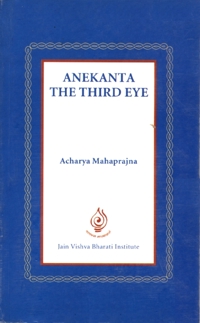
From the perspective of opinion, the third eye is neutrality.
A thinker holds on to one point of view, tries to prove it and gets attached to it. Another thinker holds a different view and sticks to it just as adroitly. The first one decries the second and the second the first. Both regard each other as opponents and look at each other with aversion. Attachment towards one's ideas and aversion towards the other's; both the eyes of attachment and aversion are doing their respective jobs. Only when the third eye is opened will the perspective of balance emerge. As soon as the third eye opens, your opinion fades away and so does the other opinion. What remains is the truth and a balanced perspective.
It is common to be attached to one’s perspectives Acharya Hemachandra presented a charming truth with the following sloka:
Kamaragasneharagou, ishatkaranivaranou Drishtiragastu papiyan durachchedaha satamapi.
Sexual passion and the passion of affection can both be easily removed. Between a husband and wife there is sexual attachment. The mother has bondings of love with her son. Both these attachments can be erased on trying. But the passion with which one holds on to one's views is very difficult to erase.
The passion towards one's views causes a lot of destruction. Even stalwarts are not able to give this up. There are those who have left their homes, the families, given up the love of their parents and cut off relationship with their friends... they have given up everything but not the attachment to the opinions. They are themselves caught in that. The attachment to one's views is a dangerous kind of attachment, bonding.
A householder's family is made of the mother, father, husband, brother, sister and so on. The monk's family is the sastra or sacred texts. A monk gets as attached to his texts, as entangled within them as one could possibly imagine a householder with his family. To remain neutral to contrary views is not easy. Neutrality manifests itself when the third eye is opened. When anekanta, which links the empirical and the transcendental, manifests itself, then the third eye opens. In other words, balanced views are arrived at with anekanta.
 Acharya Mahaprajna
Acharya Mahaprajna
